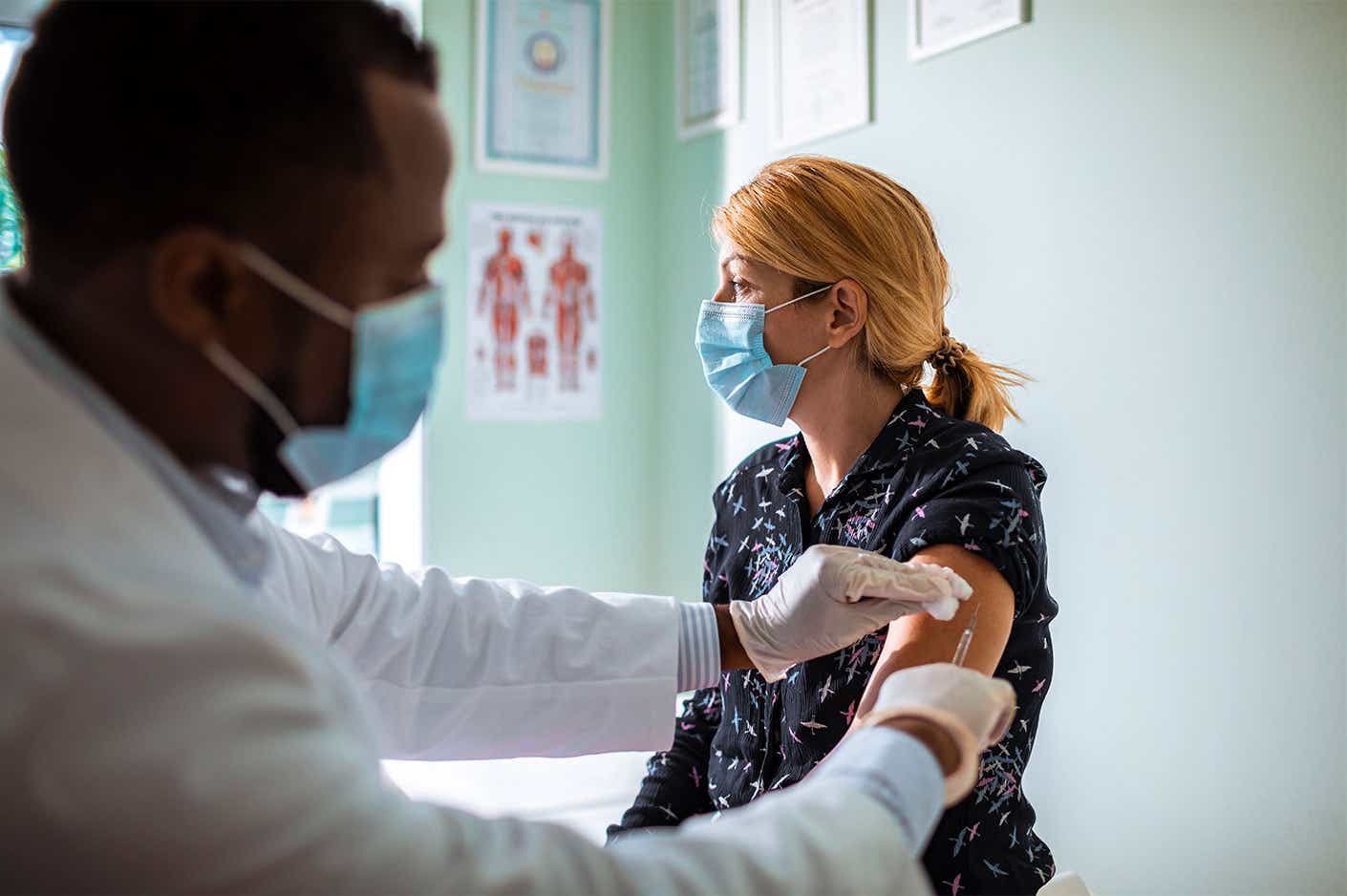The U.S. has given the final go-ahead to the nation's first Covid-19 vaccine, marking what could be the beginning of the end of a pandemic that has led to an unprecedented number of deaths and ravaged the economy.
But, as the first batch of vaccines from Pfizer and BioNTech is distributed to states, there have been some questions about safety among the general public. Dr. Purvi Parikh, a co-investigator in two leading vaccine trials, emphasized that none of the safety checks and efficacy monitoring were cut short or skipped, offering some reassurance for those who are first in line for the vaccine.
“It’s been well-tested — it won't make you sick,” she said, noting that unlike traditional vaccines like those for the flu or measles, it doesn’t contain a live or dead strain of the virus.
In addition to being administrated in two doses, Parikh noted the Pfizer/BioNTech vaccine instead uses mRNA technology, which teaches your immune system how to mount immunity to the coronavirus without actually making you sick. "The technology isn't as new or as scary as people think it is," she said.
Parikh, an immunologist and allergist, is currently one of the physicians at the Vaccine Center, which is part of the Department of Medicine's Division of Infectious Diseases and Immunology at New York University’s Langone Health. For the past several months, she has been helping run the vaccine trials for both Pfizer and AstraZeneca.
“We're basically in the nitty-gritty of running these clinical trials,” she said. According to Parikh, this includes everything from day-to-day tasks such as administering the vaccine to volunteers to managing after-hours calls from patients. Her team is also in “constant communication” with the drug companies conducting the trials, as well as the Centers for Disease Control and Prevention, the Department of Health and Human Services and Dr. Anthony Fauci’s team.
Parikh said Americans who are at least 18 years old or older shouldn't hesitate to get the vaccine — and this includes vulnerable age groups like seniors.
Nursing home residents are among those first in line for the vaccine in the U.S. and older populations who are more at risk of developing a more serious condition are also being prioritized for the vaccine in other countries. The second person to get inoculated with the Pfizer/BioNTech vaccine in the U.K. was 81-year-old William Shakespeare (yes, you read that right).
"If anything old people should get it because they're in a higher risk group, and they're more likely to get severe Covid," she said.
She also encouraged Americans with severe allergies to get vaccinated, despite a warning from U.K. health authorities stating that people with a "significant history of allergic reactions" should not be given the vaccine after two health care workers experienced symptoms from the shot.
"Even in the clinical trials, we included people with severe allergies to foods and other things,” she said. “But the only people we did not include are people with severe allergies to vaccines, so it's a very small percentage, so people with other types of allergies did presumably receive the vaccine and likely they did well.”
In response to Parikh's recommendation, the CDC pointed Wake-Up Call toward guidance it had given to clinicians during a call on Sunday. The agency confirmed that people who have experienced severe reactions to prior vaccines or injectable drugs can still get the Pfizer/BioNTech vaccine, but recommended that vaccine providers observe patients after the vaccination to make sure that there aren't any immediate adverse reactions. For people with a history of anaphylactic reactions, it recommended that patients be monitored for 30 minutes, while all others would be under observation for 15 minutes.
As the FDA has yet to approve the Pfizer/BioNTech vaccine for certain groups like pregnant women and children, Parikh acknowledged that there is still more testing ahead. She emphasized that getting full FDA approval will require more safety and efficacy data. This means that the vaccine will continue to go through its other phases, with pediatric trials up next along with further testing among high-risk groups in addition to health care workers and nursing home residents.
Once the Pfizer/BioNTech vaccine is fully approved, Parikh said the general public may not receive the vaccination until the spring or summer. In the meantime, she warned Americans not to drop normal public health measures as vaccinations begin and advised local officials to issue mask mandates.
"I support mask mandates because I personally don't think it's that big of a deal, but it really has been shown to reduce the spread if everybody has their nose and mouth covered," she said.
Despite the long road ahead, Parikh remains hopeful, saying expediting the vaccine could help streamline the process for future clinical trials, which she said has been long weighed down by unnecessary and bureaucratic paperwork.
She explained that clinical trials typically take weeks to administer vaccines or medications to participants. But she said now doctors can vaccinate volunteers during their first visit.
“This may change the way we do clinical trials in general because a lot of it is very archaic and bureaucratic,” she said.
Written and reported by Tess Bonn.









